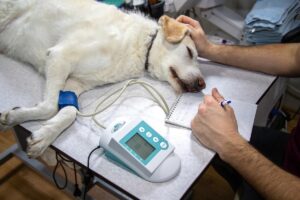The Animal Blog
Common Symptoms of Colon Cancer to Watch For
Understanding Colon Cancer
Colon cancer, a type of cancer that begins in the large intestine, is a significant health concern worldwide. It often starts as small, noncancerous clumps of cells called polyps that form on the inside of the colon. Over time, some of these polyps can become colon cancers. Understanding the nature of this disease is crucial for early detection and prevention.
Several factors contribute to the development of colon cancer, including age, family history, and lifestyle choices. Individuals over 50, those with a history of colorectal polyps or inflammatory bowel diseases, and those leading sedentary lifestyles with poor dietary habits are at a higher risk. Recognizing these risk factors can help in making informed decisions about screening and lifestyle changes.
The importance of early detection cannot be overstated. When detected early, colon cancer is more likely to be treated successfully. Regular screenings, such as colonoscopies, can help identify precancerous polyps, which can be removed before they turn into cancer. This proactive approach is fundamental in reducing the incidence and mortality rates associated with colon cancer.
Common Early Signs of Colon Cancer
Being aware of the early signs of colon cancer can significantly improve the chances of successful treatment. Some common symptoms include:
- Changes in bowel habits, such as diarrhea or constipation, lasting more than a few days.
- A feeling that the bowel does not empty completely.
- Persistent abdominal discomfort, such as cramps, gas, or pain.
- Rectal bleeding or blood in the stool.
- Weakness or fatigue.
- Unexplained weight loss.
These symptoms can also be associated with other health conditions, which is why it’s crucial to consult a healthcare professional if they persist. Early diagnosis through these warning signs can lead to more effective treatment options and a better prognosis.
Moreover, understanding these symptoms can empower individuals to seek medical advice promptly, potentially leading to early intervention. It is important to note that some people with colon cancer do not experience any symptoms until the disease has advanced, which underscores the importance of regular screenings.
The Role of Diet and Lifestyle in Colon Cancer
Diet and lifestyle choices play a pivotal role in the risk of developing colon cancer. A diet high in red and processed meats, low in fiber, and rich in unhealthy fats can increase the risk. Conversely, a diet abundant in fruits, vegetables, and whole grains is associated with a lower risk of colon cancer.
Regular physical activity is another crucial factor. Sedentary lifestyles contribute to obesity, which is a known risk factor for colon cancer. Engaging in regular exercise can help maintain a healthy weight and reduce the risk of developing this disease.
Additionally, limiting alcohol consumption and avoiding tobacco products can further decrease the risk. Both alcohol and tobacco have been linked to an increased risk of various cancers, including colon cancer. Making these lifestyle changes can be a proactive step towards prevention.
Understanding the impact of diet and lifestyle empowers individuals to make healthier choices that can significantly reduce their risk of colon cancer. Incorporating these changes not only benefits overall health but also contributes to cancer prevention.
Screening and Prevention Strategies
Screening for colon cancer is a critical component of prevention. Various screening methods are available, including colonoscopy, stool tests, and flexible sigmoidoscopy. Each method has its own benefits and limitations, and the choice of screening should be based on individual risk factors and preferences.
Colonoscopy is considered a comprehensive screening tool as it allows for the examination of the entire colon and the removal of polyps during the procedure. Stool tests, such as the fecal immunochemical test (FIT), are non-invasive and can be done at home, making them a convenient option for many people.
Preventive measures also include maintaining a healthy lifestyle, as discussed earlier, and being aware of family medical history. Individuals with a family history of colon cancer may need to begin screening at an earlier age and may require more frequent testing.
By understanding the available screening options and adhering to recommended screening schedules, individuals can take proactive steps in the early detection and prevention of colon cancer. This approach not only saves lives but also enhances the quality of life by reducing the burden of cancer.
Conclusion: Taking Charge of Your Health
In conclusion, being informed about colon cancer and its early signs is vital for early detection and successful treatment. Recognizing symptoms, understanding risk factors, and making lifestyle changes are crucial steps in prevention.
Regular screenings and consultations with healthcare professionals can aid in early diagnosis, improving the chances of effective treatment. By taking charge of their health, individuals can significantly reduce their risk of colon cancer and improve their overall well-being.
Empower yourself with knowledge and take proactive measures to protect your health. Remember, early detection is key to combating colon cancer effectively.









